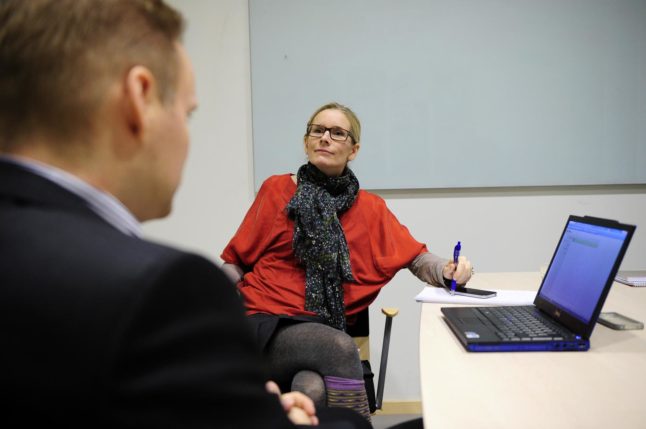The “Labour Migration to Sweden – let's improve the regulatory framework” seminar was held by Employers' organization Almega in the Swedish capital, and along with a panel discussion, a new report on Sweden's need for labour migration was presented.
The report predicts that Sweden is heading towards a situation where labour shortages will grow, with the section of the population within working age decreasing according to state number-crunchers Statistics Sweden's figures.
International workers are one way to address that, but Almega emphasized that based on the number of work permits requested each year, labour migration to Sweden appears to have peaked in 2012 and has yet to reach the same level since. High-profile problems with work permit rejections as a result of bureaucratic errors are not likely to help that trend, the organization argued.
Almega's report also cited a recent survey of international students and workers in cooperation with The Local, which showed that they have concerns about being able to fulfill the requirements necessary to work in Sweden, with a lack of understanding of the country's complex collective employment agreements and work permit regulations an issue.
In the panel debate that followed, opposition Moderate migration policy spokesperson Johan Forssell labelled Sweden's recent deportations of skilled workers over bureaucratic errors “a disgrace” that has led to talented people leaving over minor issues.

From right to left: Johan Forssell (Moderates), Fredrik Malm (Liberals), Åsa Odin Ekman (Swedish Confederation of Professional Employees), Rafiqul Islam (WPHA) and Fredrik Voltaire (Almega). Photo: Lee Roden/The Local
Liberal MP Fredrik Malm argued that with the Swedish Migration Agency under pressure dealing with asylum applications alone, the responsibility for dealing with permits related to skilled migrants should be moved to another authority, such as the tax agency for example.
But Åsa Odin Ekman of workers' organization the Swedish Confederation of Professional Employees countered that some employers are not doing enough to ensure they adhere to the necessary rules, and their employees are falling foul as a result.
The creation of an agency tasked solely with identifying and recruiting shortages in the Swedish labour market is one solution she proposed, which the panel agreed could be a positive step.
Also present on the panel was the Work Permit Holders Association (WPHA), an organization which campaigns for the rights of work permit holders in Sweden.
Speaking to The Local following the debate, their representative Rafiqul Islam said that while he thinks the situation for international workers in Sweden will improve in the future, he is not optimistic for those experiencing troubles at present.
“We think lots of things will change, but with the situation as is, a future solution can't solve present problems. A lot of people have been dealing with these issues for two and a half years, so most of them are going to be deported anyway,” Islam noted.
“Despite the new proposals, new laws and new decisions from the high court, deportations are still happening, so it doesn't make us optimistic.”
The strict regulation in the area is designed to prevent foreign professionals from being exploited, but Islam thinks there needs to be a clear distinction between those who are suffering at the hands of irresponsible employers, and those who have fallen victim to an innocent error.
“The rules were created to avoid exploitation, that's good. But what about cases where it wasn't exploitation? With some of our people the problem wasn't exploitation, it was a mistake, and they want to correct that. Sweden needs to distinguish between exploitation and mistakes.”



 Please whitelist us to continue reading.
Please whitelist us to continue reading.